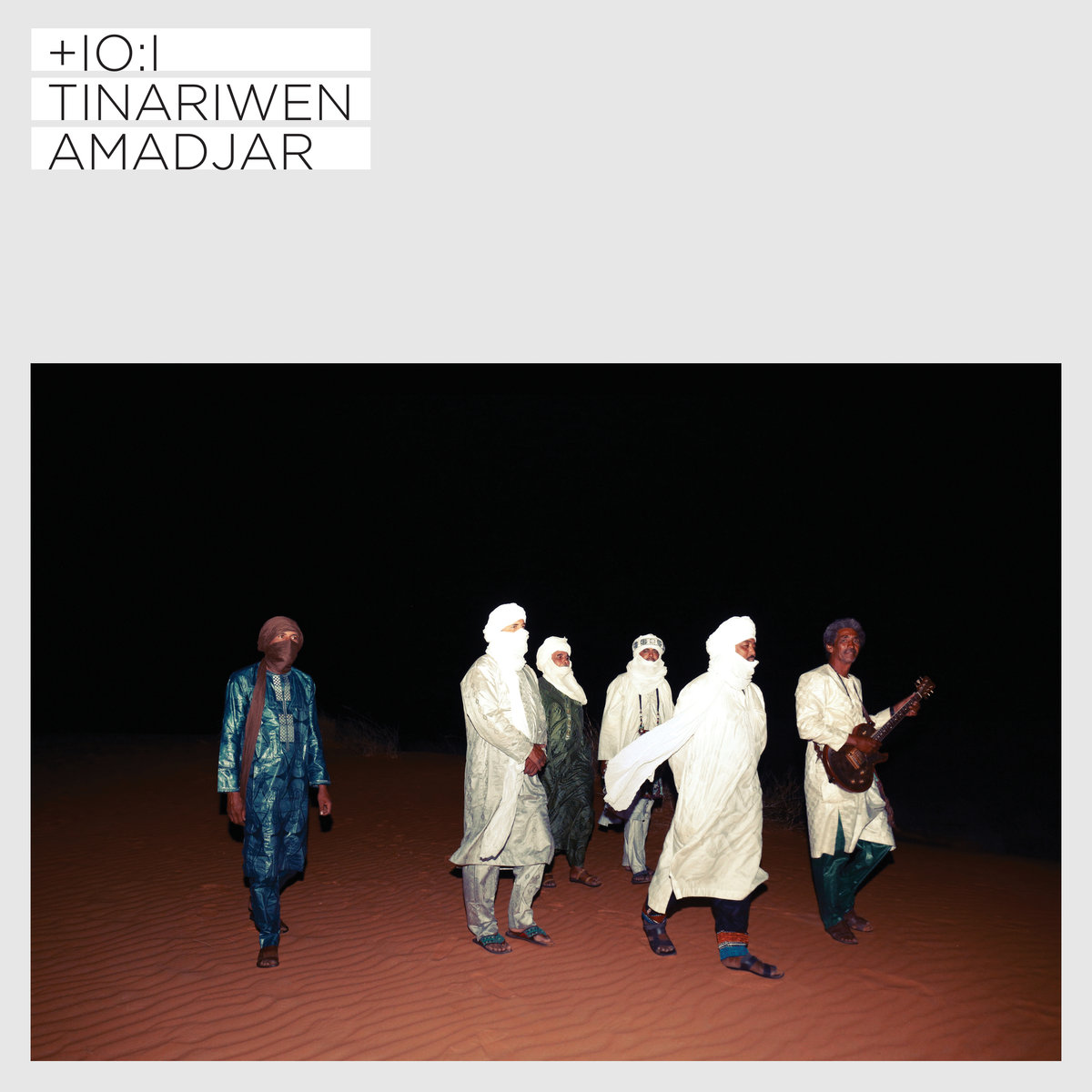Tomes from the desert; transient living and a fusion American folk music and Tuareg traditional music has defined the music of Tinariwen since 1979. Jangling guitars, polyrhythmic percussion and the exotic sounds of northwest Africa have long haunted the desert planes of the region, before being exported to the rest of the world on the wings of their 2001 record “The Radio Tisdas Sessions.” With a little help from the Internet and its role in discovering new music from foreign regions, Tinariwen won over a large international audience with their, 2006 LP “Aman Iman.” Evoking sounds of the Tuareg traditions, which encompasses everything from Malian instruments, African rhythms and Arabic tonal scales, Tinariwen was created in the great flourishing fusion traditions, channeling those elements into American blues framework that has delivered some 7 albums since 2001.
For their ninth LP, they’ve maintained their approach, and even working with western world luminaries like Warren Ellis (Dirty Three, Grinderman) and Stephen O’Malley [Sunn O)))] wield little influence over the sound of the group. Tinariwen strike a longing chord on “Amadjar” with bluesy guitar riffs and wistful vocals, bouncing between the raspy chords of Ibrahim Ag Alhabib and Abdallah Ag Alhousseyni and the sonorous siren call from Noura Mint Seymali. Choral flourishes where these voices combine, are underpinned with a sadness, which they reflect in lyrics that broach subjects of political struggles, the issues facing an ever-changing world, and the death of a loved one (if the translations are correct). There’s a sageness inflected in the lead voices that only age can bring and which the band proffer to the rest of the world in a the same blues traditions from the American south.
You can’t help infer that feeling of the vast emptiness of the desert in Tinariwen’s music, and it’s particularly palpable on this LP, especially considering the way it was recorded. “Amadjar” was created on the road between the Moroccan Sahara and Mauritania, where they would meet up with Noura Mint Seymali and record the entire LP under under a large tent. Guitar licks phasing in and out of arrangements like grains of sands whipping at your ankles, while drums pound out a rhythm attempting to break step for fear of leaving tracks. Haunting vocals and legato strings accompany the music, entering the arrangements like whispers on the wind before evaporating into nothing. “Amadjar” feels a lot softer, possibly more refined than Tinariwen’s 2006 LP, with “Amalouna” and “Madjam Mahilkamen” making tender contributions to the band’s extensive discography.
There’s a lot to unpack on this record, from the recording process to the lyrics, and although the ultimate sound of Tinariwen has evolved little since 2006, this is the first LP form the band that seems to have come together under a concept. Where their music in the past had always had some fleeting nature, with records that feel that have always come together just for that recording session, “Amadjar” sounds more developed as an LP. While songs from the band’s discography like “Asuf D Alwa” and “Sendad Eghlalen” have lived beyond their records, much of their LPs rely on familiar tropes in their music and thus there’s never really been something of creative statement from a record, “Amadjar.” (Although I can’t speak for anything before 2001.) Tinariwen have always been a live band and their LP’s have been recorded as such, and although “Amadjar” was also recorded in that way, there seems to have been much more of cohesive effort on this album to make an LP, and not just record some songs for an album and for the first time they seem to perfectly capture that transience in their music in a LP that can live way beyond the moment.

